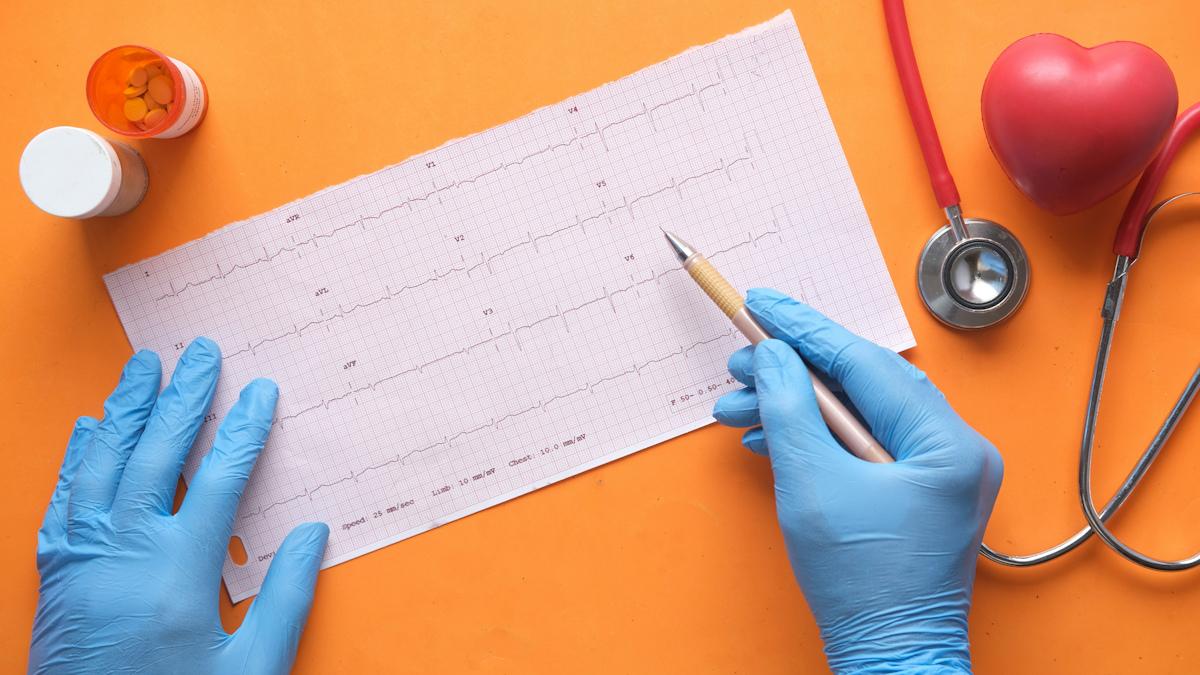Could an ECG spot people at risk of cognitive decline?

Doctors may one day be able to gauge someone's risk of premature ageing or cognitive decline from a simple electrocardiogram (ECG) backed by an artificial intelligence algorithm.
That is the intriguing prospect laid out in a study scheduled to be presented at the American Stroke Association's International Stroke Conference in Los Angeles next week, which describes a deep neural network (DNN) AI that can be used to predict a person's biological age - i.e., the age of body cells and tissues - from their ECG data.
The study draws on data from 63,000 people enrolled in the UK Biobank, which showed that, using the AI, those showing signs of accelerated ECG ageing had lower cognitive test scores than those with normal ageing scores.
"Unlike chronological age, which is based on years lived, ECG-age reflects the functional status of the heart and potentially the entire organism at the tissue level, providing insights into ageing and health status," said Bernard Ofosuhene of UMass Chan Medical School in the US, who is the lead author of the study.
It has previously been shown that ECG readings can be a predictor of heart disease and death, but the potential to use them to forecast the future functioning of a highly complex organ like the brain is remarkable.
The 63,000 people in the UK Biobank underwent cognitive testing during assessment visits, which were aligned with the timing of ECG testing. The AI was then used to determine their ECG-age.
Those with a higher ECG-age than their chronological age performed worse on six of eight cognitive tests, according to the researchers. At the same time, a group that scored lower than their actual age performed better, once again on six of eight tests.
One explanation for the findings is that ECG data can help to predict the risk of stroke, which can contribute to age-related cognitive decline. It is estimated that up to 60% of stroke survivors may have some type of cognitive impairment in the first year after a stroke.
"There is a lot of ECG data available for stroke treatment and I encourage healthcare professionals to use this data to look for signs of cognitive decline. Doing so may help with early diagnosis and timely intervention," said Ofosuhene.
In future studies, the researchers intend to explore whether gender differences have a bearing on the predictive ability of the AI and to test it in other, more diverse populations, given that most people in the UK Biobank have European ancestry.
Commenting on the study on behalf of the AHA, Fernando Testai of the University of Illinois College of Medicine said that it could have important consequences.
"For instance, ECG data collected in a doctor's office or remotely with wearables could help assess cognition at home or in rural areas lacking neuropsychiatric specialists," he suggested. "Additionally, using ECG data and AI might be quicker and more objective than traditional neuropsychological assessments."
Testai said it would also be interesting to see whether interventions to correct defects on ECG readings could help to reduce the chances a patient goes on to develop cognitive decline.
Photo by Towfiqu barbhuiya on Unsplash












